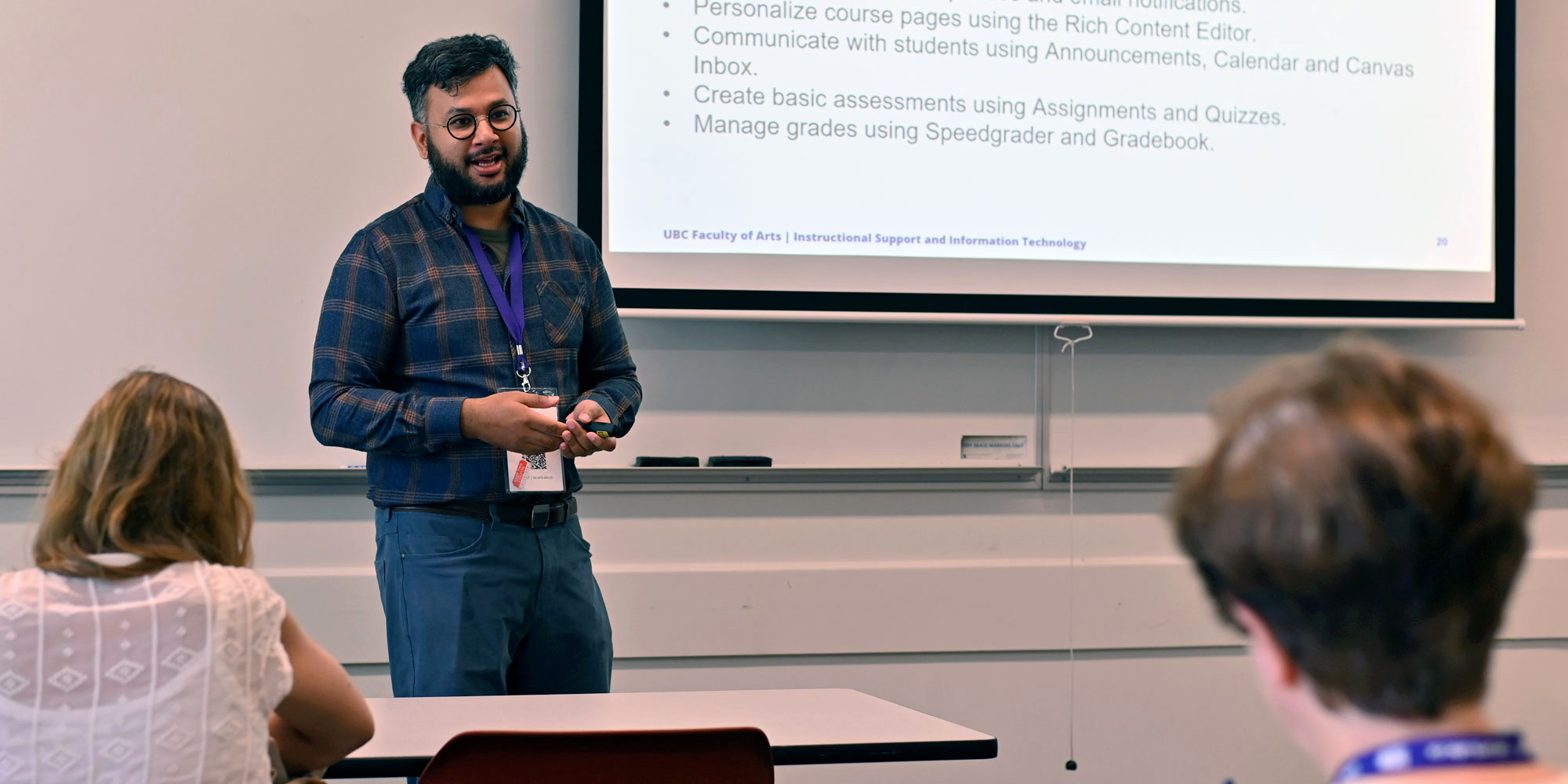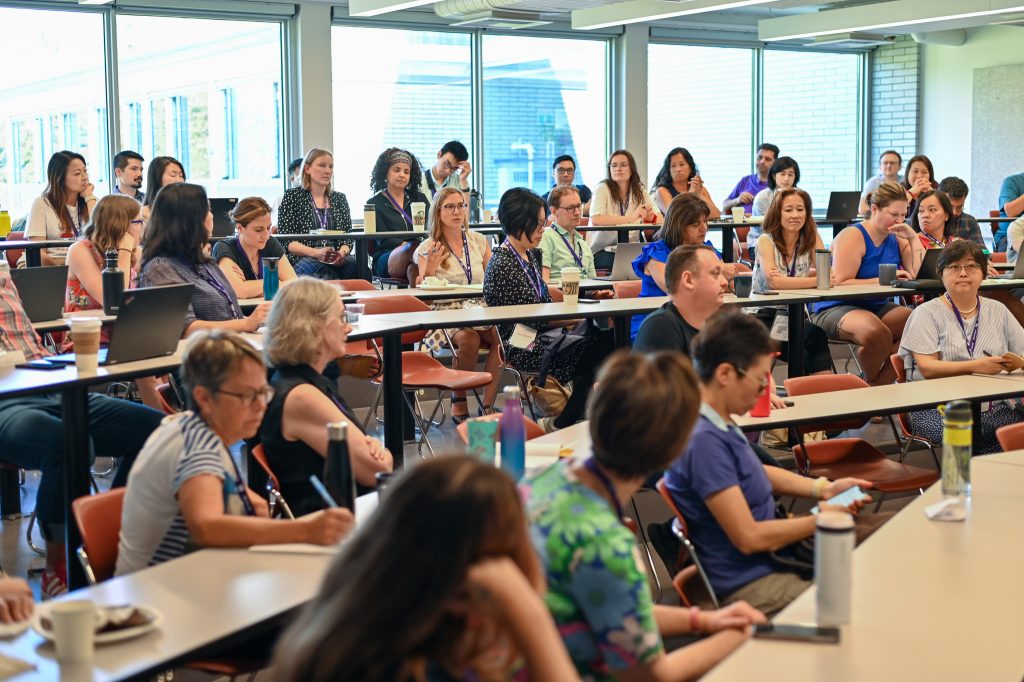

As the academic year gears up for another start, Arts Instructional Support and Information Technology (ISIT) hosted their first Arts ISIT Welcome Back Conference on August 15–16, 2023.
The event was a hub for Arts instructors, staff, and teaching assistants to share insights and resources for enhancing teaching methodologies through technology.
Over the two days, attendees had the opportunity to explore cutting-edge projects, engage in intellectual discussions, and gain a deeper understanding of the instructional support offered by Arts ISIT.
Panel Discussions: Insights from Arts Perspectives
Arts Intelligence on AI: Navigating Ethical & Pedagogical Implications


One of the standout panels was the “Arts Intelligence on AI” discussion, which delved into the opportunities, challenges, and ethical questions surrounding artificial intelligence in the context of Arts education.
The panel raised thought-provoking questions, such as “When we ask students to do their own work, what does it mean in the era of AI?” and “What are the acceptable uses of AI, particularly when it comes to generative AI tools?”. The conversation also addressed the relationship between AI and the learning process itself, questioning the boundaries and opportunities of utilizing AI without compromising the depth of student understanding.
Thoughts shared during the panel emphasized that while AI tools like Generative AI are valuable resources, they are not substitutes for critical thinking and creativity. Attendees were reminded that developing a critical relationship with AI tools is crucial, especially for educators, to effectively teach students how to leverage them while still fostering their intellectual growth.
Tools for Teaching: Elevating Learning with Technology


The “Tools for Teaching” panel provided valuable insights into leveraging technology to enhance the learning experience. Panellists discussed the concept of course templates, emphasizing that maintaining a consistent module structure across different sections can maintain quality while allowing instructors to deliver content creatively. The panel also highlighted the importance of creating spaces where technology meets active learning, enabling students to collaborate and engage with the course material.
Interactive videos were another key topic, with panellists shedding light on their effectiveness in promoting active engagement and content mastery. The use of retrieval practice and timely feedback through interactive videos emerged as strategies that educators could adopt to optimize the learning process.
Hybrid & Multi-Access Courses in Arts: Adapting Pedagogy for Flexibility
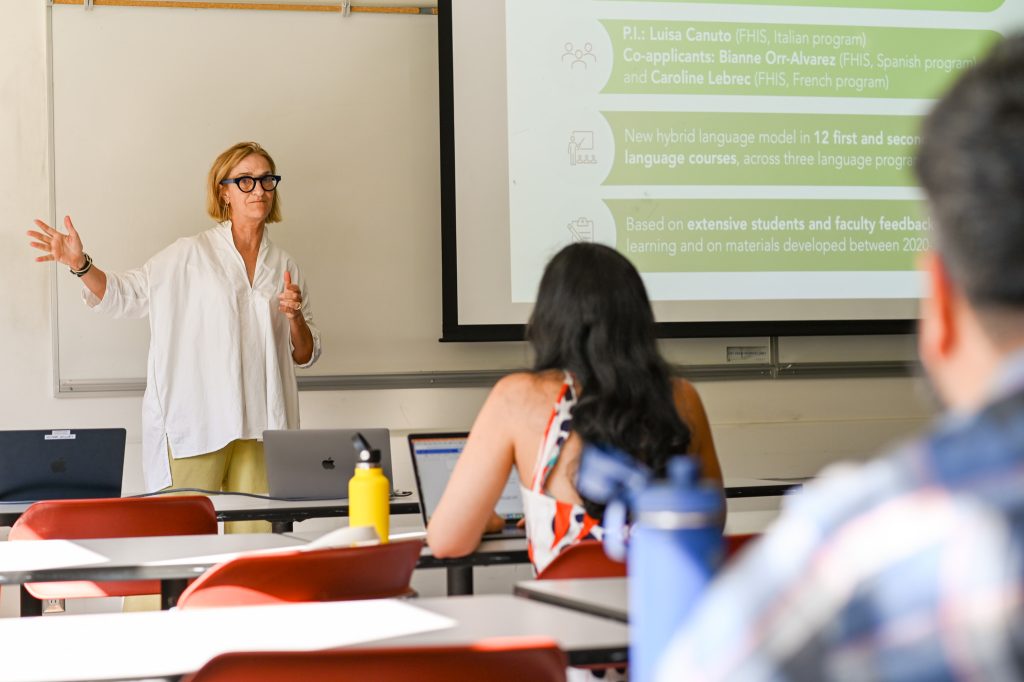

The panel on hybrid and multi-access courses addressed the challenges and strategies of designing courses that accommodate both in-person and online learning. Attendees gained insights into the distinctions between hybrid and multi-access formats, where the former involves a significant reduction of in-person time through online activities, and the latter allows learners to choose between in-person and online participation.
Panellists shared practical considerations for instructors venturing into this format, such as identifying what content is best suited for in-person or online delivery. Additionally, the panel emphasized that creating more accessible and equitable courses requires careful organization and attention to the needs of different student groups.
Practical Learning Strategies: Bridging Academia & the Real World


The discussion on practical learning strategies highlighted the value of connecting classroom knowledge with real-world applications. Attendees were encouraged to explore ways of helping students envision their future careers by engaging with alumni. This strategic approach can offer students a tangible perspective on how their academic journey can shape their professional trajectory.
New Place & Power Requirement


The event also addressed the evolving nature of curriculum development with a session focused on the “New Place and Power Requirement.”
This discussion revolved around aligning courses with UBC’s Indigenous Strategic Plan and the Faculty of Arts values. Attendees participated in an open dialogue to brainstorm ideas and strategies for creating courses that promote inclusivity and awareness of Indigenous perspectives.
Exploring the Technological Landscape
Conference Fair
Our Conference Fair allowed attendees to explore diverse topics, share experiences, and exchange ideas with fellow participants throughout the event.
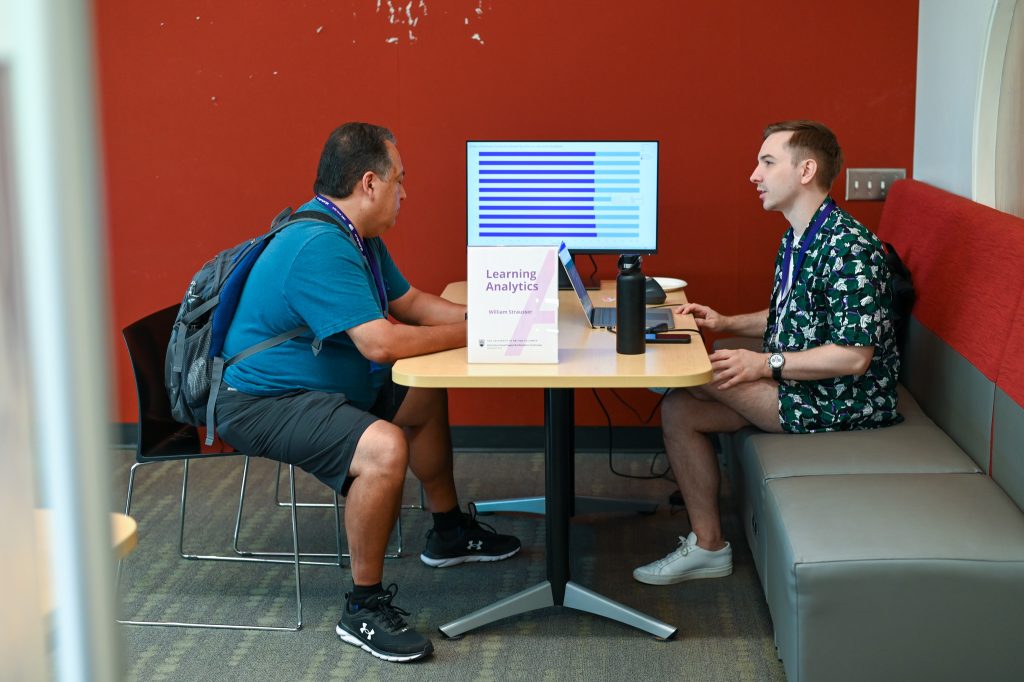

The fair showcased a variety of booths, each dedicated to different aspects of technology integration and support within the Faculty of Arts. From headshot photoshoots to insights into data analytics for strategic decisions, the booths gave attendees a glimpse into the multifaceted technological offerings.
Other booths highlighted resources such as video integration in teaching, Arts ISIT’s data analytics capabilities, the utilization of ePortfolios for showcasing student achievements, and practical learning applications in real-world settings.
ISIT-Led Workshops


Apart from facilitating panel sessions with Arts community members, we also hosted some informative workshops, including multiple Canvas workshops, classroom audio-visual (AV) demos, and a workshop on how to best leverage UBC’s productivity tools to improve collaboration and efficiency.
Bridging Technology & Pedagogy
The Arts ISIT Welcome Back Conference proved to be an immersive and enriching experience, underscoring the importance of technology in shaping modern pedagogical approaches.


From exploring innovative tools and strategies to engaging in meaningful discussions on the ethical implications of AI and inclusive curriculum development, attendees were left with insights on enhancing their teaching practices.
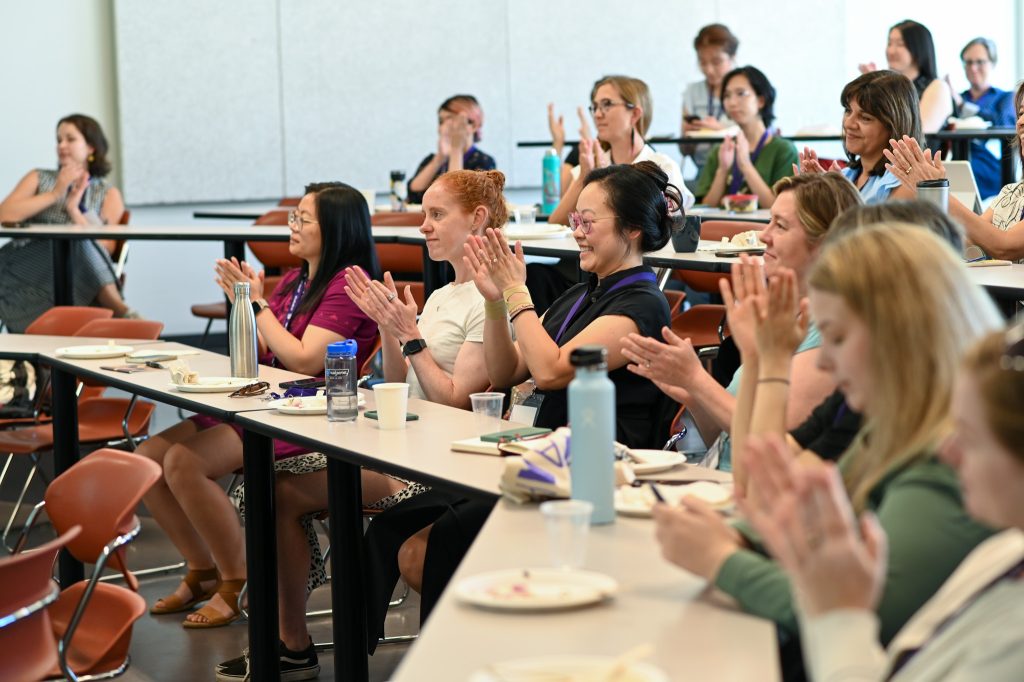

As instructors continue to adapt to the ever-changing educational landscape, events like these play a crucial role in fostering collaboration, knowledge exchange, and the evolution of effective teaching methodologies.
